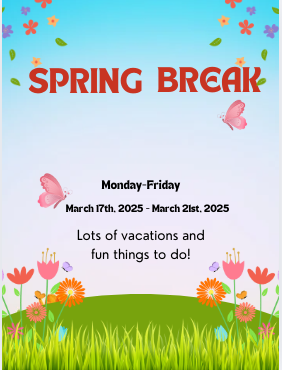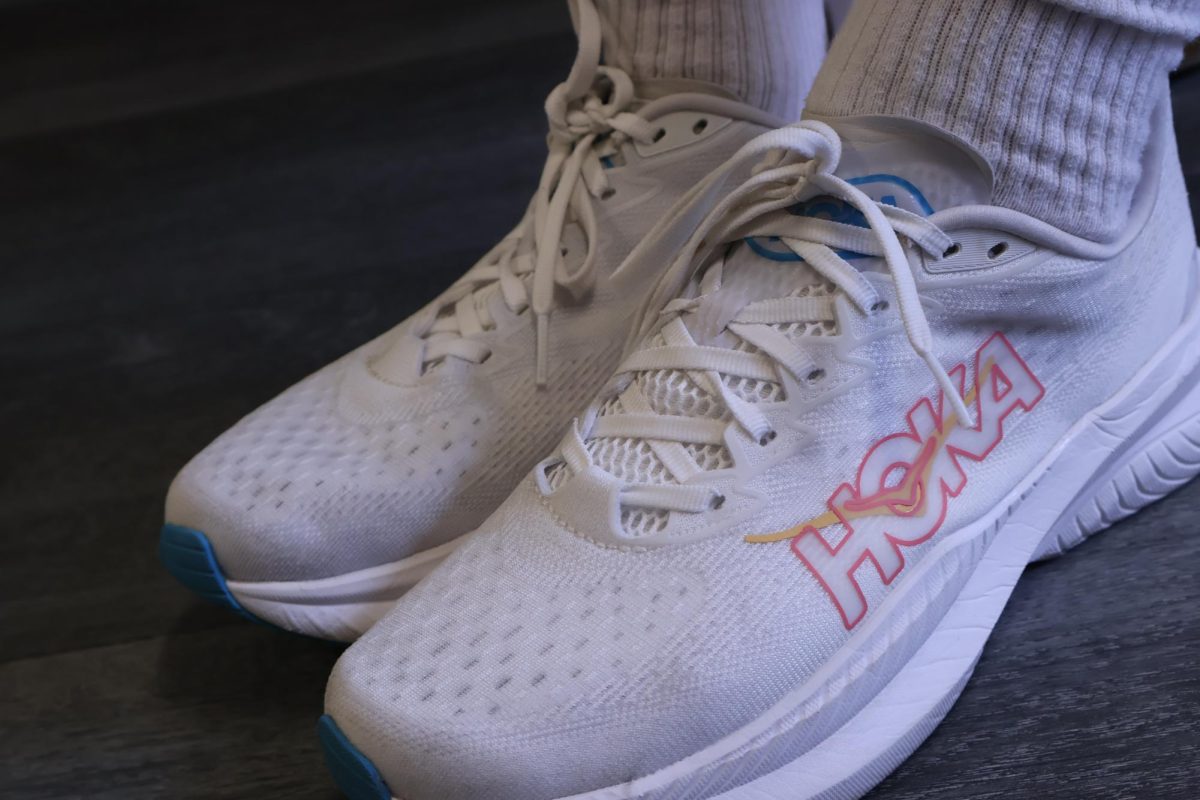The Growing Epidemic of Sleep Deprivation
A student sleeping in class.
You stare at your computer screen, eyes wide open as you revise for the following day’s history test. As you try to remember the dates, you feel a wave of exhaustion crash through your body, and you become achingly aware of the bright numbers reading “1:38 a.m.” on your digital clock. Nevertheless, you know that if you go to sleep now, you will fail the test.
This is a harsh reality for many students. It’s no secret that teenagers in today’s day and age struggle with getting enough sleep. You probably know someone who faces sleep deprivation. There are many factors as to why someone would struggle with getting enough sleep. To investigate this, we surveyed 81 eighth-graders from Canyon Vista on how many hours they sleep as well as the main factor for what keeps them up.

According to the survey, 38 people (46.91%) reported getting between 7-8 hours of sleep. Next, 24 people (29.63%) reported getting between 5-6 hours of sleep. This is almost one-third of the respondents. However, the CDC says that teenagers aged 13-18 years should sleep eight to 10 hours per day. Eighth-graders experience a lot of pressure to do well and are often reminded that it is their last year to prepare for high school. This is different from sixth and seventh grade, where students often have more time on their hands and less pressure. A common factor that contributes to eighth-graders getting less sleep than recommended is the intense pressure to do well in school.
“By the time that you get to eighth grade, you have more on your plate, and so a lot of kids, they find themselves sleeping later because they just have more to juggle. And therefore, they go to bed later because of all their activities, and trying to fit homework in, or studying,” Ms. Caroline Friesenhahn said.
Another factor is the normalization of sleep deprivation. Students often talk about not getting enough sleep and can try to one-up each other, treating sleep deprivation as a race that they want to win. This can subconsciously influence people into sleeping later and later.
“It’s making it seem super cool to not sleep, it’s idolizing people who don’t take their health seriously. I think the idea of, ‘Oh, I stayed up till three o’clock, haha! Oh, I stayed awake till four!’ They try to outdo each other like that’s something to be proud of,” Mrs. Jennifer Gonzalez said. “It’s like it’s a badge of honor to say, ‘I was either up late studying or I was up late TikToking and Instagramming… or I just couldn’t sleep.’ I think there’s a deeper reason, like if there’s a reason we’re not sleeping, then there’s a reason things need to be addressed. It’s not healthy.”
According to a new report by Common Sense Media, the average amount of daily screen use among teens (ages 13-18) is seven hours. This is a whopping amount, considering a minimum of eight hours of the day should be devoted to sleep initially. Since teens are often on their phones, this can be a large contributing factor to sleep deprivation, especially since there is constant contact between friends and family through Discord, Instagram, messages, and more.
“I think it might be just ‘cause of our phones. Texting someone, keeping a conversation, being on social media… Those things are also impacting us,” 10th-grader Kriya Handa said. “Either that or we do those things first so when we start doing our work, it ends up becoming later because we did not prioritize work and prioritized social media.”
Texting using phones only started for the public in 1999, and gained popularity in the early 2000s. Phones are a relatively new technology. A couple of decades ago, the distractions that phones posed were simply not there. However, now, there is constant communication between people using a wide range of apps. Since people are constantly connected, it’s so much more preferable to talk to someone rather than sleep – which leads to the problem.
“There’s just less to do, right? So the last couple of decades, there wasn’t all this technology, like phones. I mean, I got my phone when it was 2001, so that is only 20 years ago. And that’s when phones started to become popular, for, like, the public to have. And so, you know, even on the phones, you have games and all that stuff to distract you,” Ms. Friesenhahn said. “I feel like, because there was less to do, there was maybe more sleep to be had. Just cause kids were like, ‘Oop, well I guess I gotta go to sleep!’ whereas now, there’s always some sort of entertainment, Netflix, at your hand… and so, it’s more tempting to want to stay up and do those things.”
While in middle school, the intense pressure starts in eighth grade, in high school, there is everlasting intense pressure. There are a lot of different things to worry about, and the change from middle school to high school can be quite jarring.
“I feel like sleep patterns may get a little bit worse going from middle school to high school, because once you get to high school, the curriculum’s a bit harder depending on what subject area… they’re already thinking about post-high school. It’s okay in middle school but totally shifts to more stress, less sleep, you’re constantly worried about everything that is high school,” Mrs. Amber Ramirez, the Advanced Algebra 2 and IB Math Applications HL teacher at Westwood said. “The academic pressures that I have witnessed being here at Westwood is obviously GPA… there’s already that pressure… so in their classes, they’re constantly worried about their grades. They wanna make sure they have the highest grade they can get in their classes because that obviously affects their GPA. And of course, you’ve got honors classes, AP, IB, all the things that might affect that GPA rank too so they almost feel pressured.”
Sleep deprivation has become almost fully normalized. Lack of sleep is often glorified, and seen as a competition in which you can outdo each other. There can often be toxic behaviors that encourage not sleeping enough. Ms. Friesenhahn has commented that she has never heard anyone tell another person “You should go to bed earlier.” These toxic behaviors can often be around getting better grades. However, Mrs. Gonzalez argues that sleeping less can contribute to lower grades.
When you’re not sleeping, if it’s because of stress or anxiety, that’s gonna affect your grades. If it’s because of bad habits, then you’re not thinking clearly. You are exhausted – “All I can think about is my bed right now, all I can think about right now is staring off into the wall and not do [sic] my work.” If you’re not mentally prepared for your school, your job, then it’s gonna suffer. That’s just the way it is.” Mrs. Gonzalez said. “Kids have a lot of things going on… and sports and band, orchestra, choir, all of these things they want to participate in, they might not be able to because they’re just exhausted. I think school is actually the bottom of the ladder. That’s the first thing that suffers and the last thing they really think
Especially among advanced students, there’s always that normalization of staying up. It’s often seen as the ideal, showing that someone is really hard-working. However, a study published in the Proceedings of the National Academy of Science showed that for every average hour of nightly sleep lost over a semester, students’ GPAs dropped by 0.07 points.
“I think there’s that mentality. It’s like a college mentality, and it’s very detrimental to our health. The idea that you gotta stay up to get better grades and I see that in college; when you go to college, people come in with that mentality that you gotta stay up to do well,” Mr. Michael Comfort said. “And what happens is, when those students stay up till 3 or 4 a.m. in the morning usually studying for exams or all sorts of stuff, by the time they get into the test, usually a lot of them are just exhausted and tired and not mentally ready to take the test. So yeah, it can be detrimental. It’s a hard lesson.”
According to the National Institute of Health (NIH), Blacks/African-Americans were more likely to report short sleep duration while Chinese Americans reported overall poor sleep quality. There is intense pressure to do well in school and get into a good college among children of immigrants especially, because of the burden that comes with, “We came to America to give you a better life.”
“Our school is very different; it’s like a demographic anomaly. Westwood and Canyon Vista are completely geared towards colleges, and it’s not just any colleges. It’s UT and Stanford and Harvard and Yale, the elite colleges,” Mr. Comfort said. “And I think that I can see that in the students, like feeling stressed and not getting sleep.”
According to the American Academy of Pediatrics, around 20-30% of high school students fall asleep in school each day, and around 6% of middle school students fall asleep in school each day. There’s always the fear of the teacher catching you falling asleep, but often, the teachers do care about their student’s well-being.
“You see students coming in [class] in the morning, dragging, falling asleep in class, and that’s because they either just got out of bed or they were up way too early. Sleep was not good sleep, and then at the end of the day, usually you’re getting into this kind of adrenaline push, and then by the end of the day, you’re just done, like it’s been too much. They’re shutting down,” Mrs. Gonzalez said. “I’ve had kids sleep in my class before. And if it’s ok, then it’s ok. If I can allow that, then I’ll allow that.”

To further investigate the factors that contribute to sleep deprivation, another study was conducted. 28 people (34.57%) reported having homework as the main reason why they would have to delay their sleep schedule. In a close second was a range of media, with 24 people (29.53%) reporting media as to why they would delay their sleep schedule.
“This is middle school. School is getting more intense and more intense earlier and earlier and earlier, and that’s a shame because middle school is also the place where you figure out what you want to do. It should be the place to figure out what you want to do. Take all the classes you can to see which one fits best. Try this group of friends, try this group of friends, try this activity, try this sport, try whatever. And that’s what middle school should be. For me, it should be more of a self-discovery instead of a [sic] “I have to figure out the rest of my life right now.” and that’s unfortunate,” Mrs. Gonzalez said. “I think there’s a lot of pressure put on kids that shouldn’t be. Like, a lot. They should be able to kinda play a little bit at school because it can’t always be that intense.”
At the end of the day, while schools try hard to limit the homework students have and often talk about getting more sleep, the homework schools give is the main factor to sleep deprivation in students.
“I have a habit of waking up early even when I don’t have anything to do. My friends are often stressed out about their grades and unable to sleep,” Tianwen Gao (8) said. “When I sleep enough, I am able to have a productive day, whereas when I don’t, I feel unfulfilled and empty on the inside. One of my friends… its physical and mental health is quickly deteriorating due to the lack of sleep it gets.”
The epidemic of sleep deprivation is widespread and continues to deteriorate students’ health day by day. It’s imperative to take care of your health, and sleep is a key part of your mental, physical, and emotional health.

Hey, I'm Vedanti, and I'm in 8th grade! I'm really excited to lead Canyon Echoes alongside Nikhil and Saanvi. In my free time, you can find me reading,...























Nikhil • Aug 18, 2023 at 11:48 am
This was such a good article :sob: